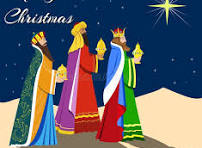Here we go again!

Here we go again!
Luke is having another go at the Pharisees and scribes – the local leaders!
He’s having none of their power-mongering, their sucking up to Roman imperial power.
When I was here a few weeks ago I spoke of Luke shaping a story in which Jesus provokes the leaders of the synagogue and calls them hypocrites.
And again, today, in this story, Jesus certainly isn’t trying to win friends among the office holders and powerful elite. We are told the tax collectors and sinners were coming close to listen, that would have been frowned upon by the officeholders.
This time, as Luke tells it, Jesus is baiting the Pharisees and scribes with insults to ideals and practices they uphold. He compares them with shepherds and women! Shock, horror!
Shepherds are unclean members of a despised profession – way down the social ladder. So, suggesting the Pharisees and scribes might think they could be among that group and have lost a sheep is a major insult!
And women, as we know, are second class members of the community, so by inference, calling them ‘women’ – he says, in direct speech to the pharisees, “which woman’”– and thereby invites them to think from the point of view of being a woman – “having lost a coin would not search till she finds it?”
Remember, there is a large crowd travelling with him as he journeys toward Jerusalem toward trial and crucifixion which was to follow some weeks ahead. Reading through the story of Jesus, as Luke presents it in the Gospel, it’s hard to imagine any other ending than death. Jesus seems to be challenging and insulting the Pharisees and community leaders at every turn. He even has a go at some others who enquire after joining his community of followers and disciples – people who make an enthusiastic rush at being part of, what they perceive as, the ‘in-crowd’ but don’t stop to consider the full implications of what they are doing and fade away because to it too hard.
So, what is Luke getting at? It seems Jesus is having a good time with the ‘tax collectors and sinners’ – he is accused of welcoming them and eating with them!
The ‘lost sheep’ is familiar, it is also part of Matthew’s Gospel, but the woman searching for a lost coin and then throwing a lavish party when she eventually finds it seems to be another of Luke’s crazy little stories. It seems to me both the stories are a bit odd: If your livelihood depended on your sheep who would really leave99 unprotected and go in search of one, and if one coin was so critical that you searched the house and lit an expensive light in order to search for it would really throw a lavish party, costing so much more, for friends and neighbours when you found it.
So again, we ask, ‘what is Luke getting at’?
It is a bit obvious to say he was attempting to describe God’s approach to individuals who wander from The Way, who ‘go off’ after a different experience or dream. But perhaps he was.
We know that Luke pays particular attention to those who are excluded from the community for one reason or another. This seems to resonate with the rejection and marginalisation Jesus himself experiences at the outset of his ministry (4:14-30) when the people were so enraged by what he is saying they rose up and drove him out of town.
Luke, as is the wont with stories about Jesus turns things upside down. We know he has a particular interest in those on the margins and in assuring his audience (in the conflictual time in which he was writing) that they are included, they will not be left to flounder about, trying to be part of the community of Jesus followers; the community of faith as we call it today – or the ‘Body of Christ’. It doesn’t matter if they are one of the in group or one of the marginal, a first-class citizen or located lower down the strata – “you are part of the in crowd” he tells them.
Luke’s Gospel and the book of Acts, both tell of missionary journeys; the gospel presents Jesus’s journey from Galilee through the towns and villages to Jerusalem with Jesus as God’s missionary emissary. The writer, Luke. is offering the stories into the complex and conflicted social milieu probably in the first decades of the second century. He is writing for a gentile audience and setting out an orderly progression of the Jesus story so his audience could know who Jesus was in life and in death and what the social vision was that he was proclaiming. And this emissary, Jesus, is presenting the God whom he represents both as a despised shepherd, and a second-class citizen, a woman!
Neither the shepherd nor the woman say, “never mind, I still have 99 sheep, or not to worry I still have 9 coins.” The expected is turned upside down again! This God wants it all, nothing can be lost, everyone, every coin, is to be counted as critical to the wellbeing of the community!
I can’t help wondering what the stories offer us today, in our times. What the challenge is for our times.
Most of us are not on the margins of our society, most of us are not among the despised and Are they urging us to break ranks and get out there beyond the safety of our own social group and identify those who are not part of our mainstream society - making sure those disadvantaged have every opportunity to rejoin as valued members with all the rights and privileges of being part of the community? Are they telling us we are the ones who must do the searching?
It seems we are often asked to look beyond our own social group for insights into the work of God, to see where the Spirit is already at work before us and to join in. Perhaps the shepherd who chases after his roving sheep will bring back to the rest of the flock, and to the other shepherds, insights that will change their lives and ways of doing things. Perhaps they will find the loving justice of God beyond the safety and familiarity of the community they know and the familiar customs and protocols it embraces.
And as for the woman searching so diligently for her lost coin. What if she finds something she would rather not see again? Something that reminds her of things she would rather forget! We know how freeing it is to conform ‘demons’ we have harboured for years! Ah, but then the party – freedom is worth celebrating - or was it the realisation there is always enough to share - the profligate sharing of the wealth such as it was - with a party for neighbours and friends.
These parables, these strange little stories certainly seem to me to be suggesting that the spirit of God that enlivens us, that we are in touch with and flows through us, expects us to be the ones to act: to be the ones to locate those at risk and to share the wealth of the community – and to celebrate the plentiful indiscriminate love of God.




